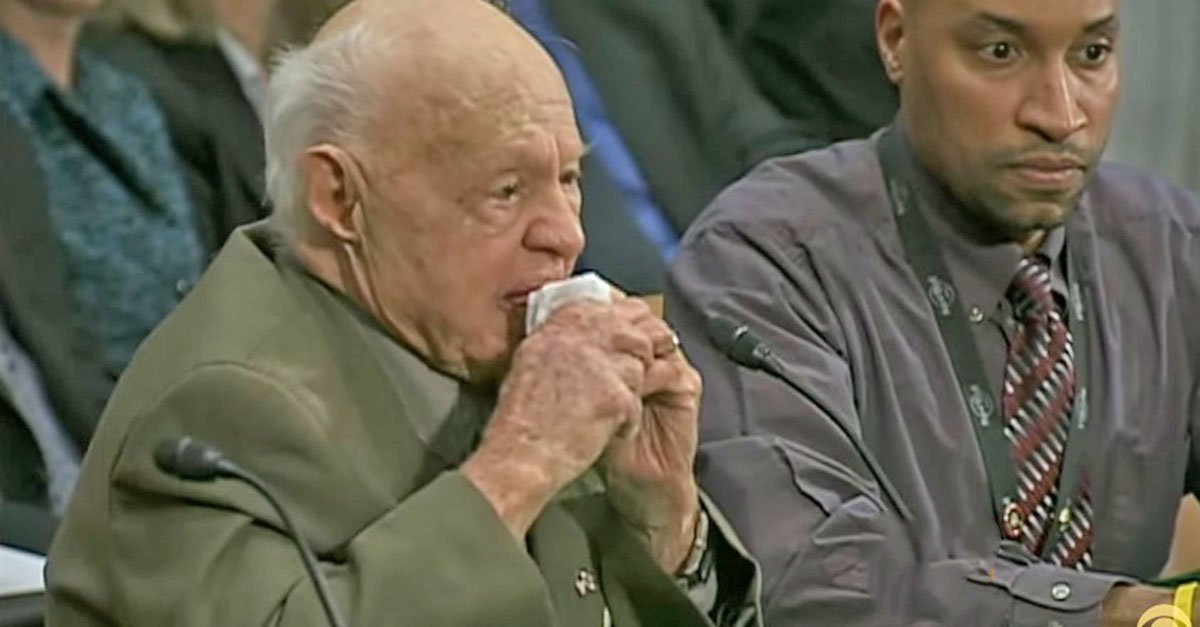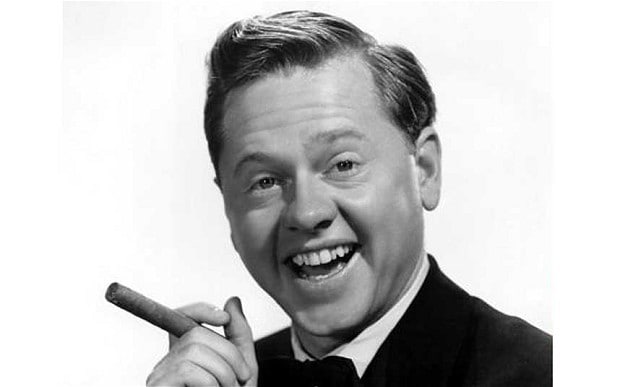Mickey Rooney was a beloved movie star who starred in over 200 roles.
In 2014 he was about to do something far more brave than any character he had ever played could ever dream of doing. He stood in front of the members of Congress and told his personal and painful testimony of being a victim of elderly abuse.
[rsnippet id=”4″ name=”DFP/34009881/Article_1″][rsnippet name=”universal-likebox” multi-site=”true”]
Rooney was begging Congress to take a hard stance against elder abuse when he talked about the abuse he suffered during 2011 at the hands of his own stepson. He talked about how his stepson had turned his own home into a prison from hell. Rooney’s stepson was physically and verbally abusive to the Oscar award winning celebrity. What kind of monster treats their elders in such a horrifying way?
Rooney explained that his stepson had taken control of all of Rooney’s money, hid his identification away, was verbally abusive constantly and even deprived him of medicine and food. Rooney was unable to leave the home without his abusive stepson’s approval and was being deprived of his basic needs. Truly despicable.
[rsnippet id=”5″ name=”DFP/34009881/Article_2″]
The celebrity was hopeful his story would help other victims feel less ashamed about coming out.
“When a man feels helpless. It is terrible. And I was helpless,” Rooney said. “For years I suffered silently, unable to muster the courage to seek the help I knew I needed”.
If this abuse can happen to a man like Rooney, who won Oscar and Emmy awards for his amazing performances, it proves that the abuse is never the victim’s fault.
Sadly the number of victims of elderly abuse steadily rises with estimates of over 2 million elderly people becoming victims to this type of abuse. As a society we should not allow our elders, those who protected us when we were younger be tortured like this.
Here are some common symptoms of elder abuse, from the Administration on Aging:
- Brusies, bedsores, broken bones, or burns
- Depression or unexplained changes in behavior such as withdrawing from activities
- Sudden changes in finances
- Poor hygiene, sudden weight loss
- Strained or tense relationships between the elderly and a family member or the caretaker
Please visit AOA.gov or call 1-800-677-1116 for more information on elder abuse and how to seek help if you’re a victim.
[youtube https://www.youtube.com/watch?v=W9ikKP5-s5A&w=810&h=456]
[rsnippet id=”6″ name=”DFP/34009881/Article_3″]



